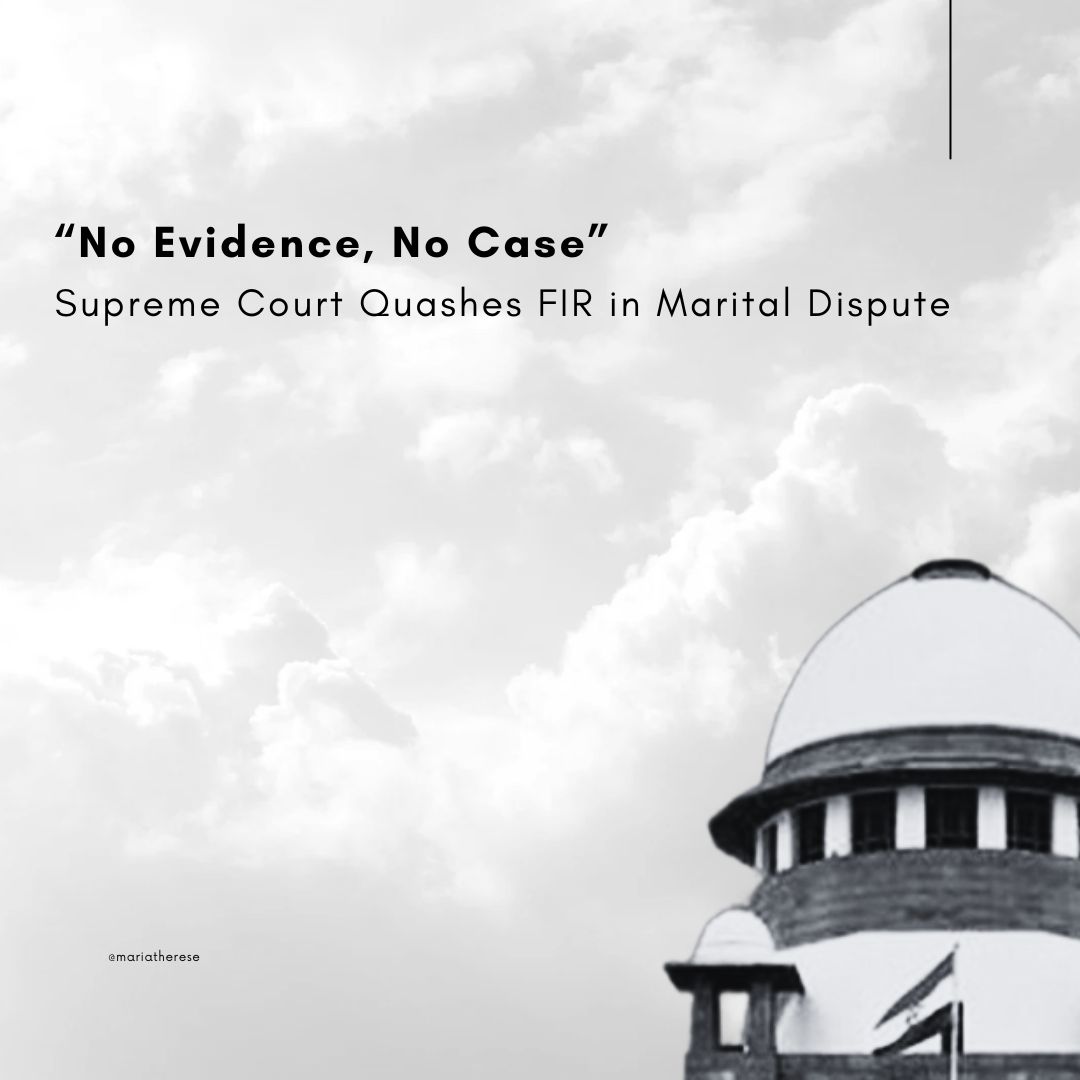Abhishek Saxena v. State of Uttar Pradesh.
Case No.: Criminal Appeal No. 3628 of 2023.
Court: Supreme Court of India.
Date: November 28, 2023.
Quorum: Hon’ble J. C. T. Ravikumar, J. Sanjay Kumar.
Facts of the Case
In the case of Abhishek Saxena v. State of Uttar Pradesh, the dispute arose from an FIR registered on September 4, 2016. The FIR was filed against Abhishek Saxena, his parents, and relatives, alleging offenses under Sections 323 (voluntarily causing hurt), 363 (kidnapping), 384 (extortion), and 406 (criminal breach of trust) of the Indian Penal Code (IPC). The charges were filed by the complainant, who is the second respondent, following an incident that allegedly occurred on June 12, 2016. The complainant claimed that Saxena and his relatives had taken away her daughter and assaulted her when she inquired about her daughter’s whereabouts.
Legal Issues
- Whether the FIR and the subsequent chargesheet disclosed the necessary ingredients to constitute the alleged offenses under Sections 323, 384, and 406 of the IPC?
- Whether the High Court was justified in not exercising its powers under Section 482 of the Criminal Procedure Code (CrPC) to quash the FIR and the chargesheet?
Legal Provisions
- Indian Penal Code:
- Section 323, IPC: Deals with punishment for voluntarily causing hurt.
- Section 384, IPC: Defines punishment for extortion, requiring proof of intentionally putting a person in fear of injury and dishonestly inducing the person to deliver property or valuable security.
- Section 406, IPC: Pertains to criminal breach of trust, necessitating proof of entrustment of property and its dishonest misappropriation or conversion for personal use.
Contentions of the Petitioner
The petitioner, Abhishek Saxena, contended that the chargesheet did not disclose any material evidence to substantiate the allegations of causing hurt, extortion, or criminal breach of trust. The complainant’s allegations were vague and lacked corroborative evidence, such as medical reports or documented injury claims. The FIR was filed with considerable delay, which was only after Saxena had filed a petition for the dissolution of marriage and for custody of the minor daughter under the Guardians & Wards Act.
Contentions of the Respondents
The respondents, primarily the complainant and the State of Uttar Pradesh, argued that the FIR and the chargesheet contained sufficient allegations to proceed with the prosecution. The delay in filing the FIR was justified due to the circumstances and the nature of the offenses. The High Court correctly declined to quash the proceedings at the preliminary stage.
Judgement and Analysis
The Supreme Court, after reviewing the materials on record, found that the allegations and the chargesheet did not disclose the essential ingredients required to constitute the offenses under Sections 323, 384, and 406, IPC. The Court noted that there was no material evidence to support the allegation of causing hurt, such as medical reports or treatment records. The ingredients necessary to constitute extortion and criminal breach of trust were absent in the chargesheet. The significant delay in filing the FIR and the lack of substantive evidence weakened the complainant’s case. Consequently, the Supreme Court quashed the FIR and the chargesheet, setting aside the order of the High Court, and allowed the appeal.
The judgement underscores the importance of substantiating allegations with concrete evidence before proceeding with criminal prosecution. It reflects the judiciary’s role in preventing the misuse of legal provisions for personal vendetta, particularly in marital disputes. The decision to quash the FIR and the chargesheet was primarily driven by the lack of essential evidence and the significant delay in filing the FIR, which appeared to be retaliatory following the petitioner’s legal actions concerning the dissolution of marriage and child custody.
Conclusion
The judgement in Abhishek Saxena v. State of Uttar Pradesh reaffirms the need for due diligence and robust evidence in criminal proceedings. It also highlights the judiciary’s vigilance in safeguarding individuals from baseless prosecutions, ensuring that the legal process is not weaponized for ulterior motives. This case serves as a critical reminder of the balance that courts must maintain between allowing legitimate legal grievances to be addressed and preventing harassment through frivolous litigation.
Judgement reviewed by Maria Therese Syriac.
Click here to read the Judgement.
PRIME LEGAL is a full-service law firm that has won a National Award and has more than 20 years of experience in an array of sectors and practice areas. Prime legal fall into a category of best law firm, best lawyer, best family lawyer, best divorce lawyer, best divorce law firm, best criminal lawyer, best criminal law firm, best consumer lawyer, best civil lawyer.


